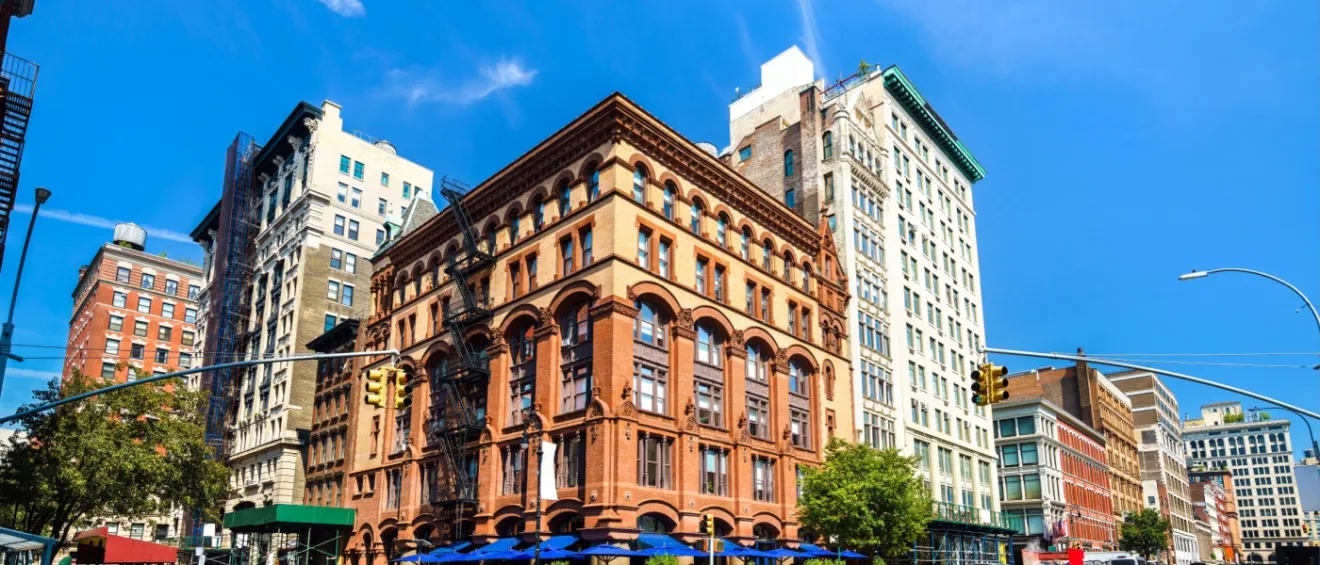Share this article:
Living in a major city has undeniable perks, especially for Gen Z renters. These bustling urban centers offer unparalleled access to cultural hotspots, career opportunities, and diverse social experiences. From world-class restaurants to vibrant nightlife and innovative coworking spaces, living in major cities can feel like you’re at the epicenter of everything exciting. For many Gen Z renters, the fast pace and endless possibilities are worth the investment.
However, living in expensive cities isn’t without its challenges, especially when it comes to renting. Rent prices, utility costs, and the overall cost of living can make managing finances tricky. As a generation known for its adaptability and resourcefulness, Gen Z renters often find creative ways to navigate these financial hurdles.
So, if you live in an expensive city or planning to move to one, here are five practical tips to help you thrive.
1. Maximize your living space
Living in pricey cities often means compromising on square footage. Smaller apartments are the norm, but with the right approach, you can make the most of your space. Invest in multi-functional furniture like beds with built-in storage or foldable tables that double as desks. Wall-mounted shelves and over-the-door organizers can free up precious floor space.

Think creatively about how to declutter and organize. For example, vacuum-sealed storage bags are perfect for seasonal clothing, and vertical storage solutions can help you keep items tidy without taking up too much room. By maximizing your space, you’ll create a comfortable home that feels less like a tight squeeze and more like a personalized haven, even in expensive cities.
2. Split rent with roommates
Roommates aren’t just for college — they’re also a game-changer for Gen Z renters in major cities. Sharing an apartment with others can significantly cut down on rent and utility costs. Beyond financial savings, roommates can add a social aspect to your city life, making the experience more enjoyable.

Finding the right roommate match is crucial. Look for individuals with compatible lifestyles and habits to ensure a harmonious living arrangement. Roommate agreements outlining shared responsibilities, like cleaning and bill payments, can help avoid potential conflicts. Whether you’re new to a city or looking to lower expenses, sharing a living space is one of the smartest ways to thrive in expensive cities.
3. Take advantage of local discounts and free events
Though they tend to be expensive, major cities are full of opportunities to explore without breaking the bank. Many major cities offer discounts for students, young professionals, or local residents at museums, theaters, and fitness centers. Download apps that highlight free or discounted events, such as outdoor movie nights, community yoga classes, or open mic evenings.

Another savvy move is to research loyalty programs at your favorite local spots. Coffee shops, restaurants, and even transportation services often have rewards systems that can help you save over time. By tapping into these resources, you’ll stretch your budget further while enjoying everything your city has to offer.
4. Embrace public transportation or sustainable alternatives
Owning a car in major cities can be an unnecessary expense, especially with parking costs and maintenance. Instead, familiarize yourself with the local public transit system — places like New York City, Philadelphia or Boston have reliable public transportation networks that make getting around a breeze. Plus, subways, buses, and trains are not only budget-friendly but also eco-conscious options.

If public transit isn’t your thing, look for alternatives. For shorter commutes, consider walking or biking. Many expensive cities have bike-share programs that make cycling affordable and convenient. Electric scooters are another sustainable alternative gaining popularity in urban areas. By embracing these smart transportation alternatives, you’ll save money and reduce your environmental impact while navigating your city with ease.
5. Plan your budget and stick to it
Budgeting is essential for any renter, but it’s especially crucial in expensive cities. Start by determining how much rent you can afford and how much you’ll pay for utilities (these are your fixed expenses) and allocate a portion of your income for savings. Apps designed for budgeting can help you track spending and set financial goals.
Don’t forget to leave room in your budget for unexpected expenses, like repairs or social activities. Being mindful of your spending habits doesn’t mean giving up on fun — it simply ensures that you’re prioritizing your needs and avoiding financial stress. A well-planned budget will help you enjoy your life in an expensive city without feeling constantly strapped for cash.

Whether you’re already settled in a bustling metropolis or planning your big move, remember that adaptability and resourcefulness are your greatest assets when living in expensive cities. By taking proactive steps, you can make the most of big-city living without compromising your financial well-being. So, get out there and embrace the opportunities — your adventure in an exciting urban hub awaits!
Share this article:
Veronica Grecu is a senior creative writer and research analyst for RentCafe. With more than 14 years of experience in the real estate industry, she covers a variety of topics in the apartment market, including rental competitiveness, new construction and other industry trends. Her work has been featured in top publications like The New York Times, The Washington Post, The Wall Street Journal, The Philadelphia Inquirer, The Miami Herald, CNN, CNBC, and more. Prior to RentCafe, Veronica was involved in producing real estate content for Multi-Housing News, Commercial Property Executive and Yardi Matrix. She holds a B.A. in Applied Modern Languages and an M.A. in Advertising and PR.
The Ready Renter has your back
Tips, news, and research curated for renters, straight to your inbox.




Related posts
Subscribe to
The Ready Renter newsletter







